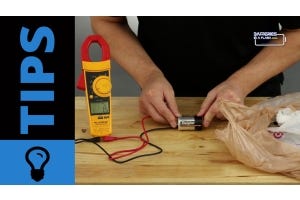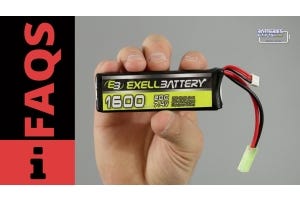How Exactly do Lithium-ion Batteries Work? Part 3


Due to the nature of lithium ion batteries, the volatility and the power they can be rather expensive. Since they are expensive, it only makes sense to make the battery last as long as possible. The first tip to elongating the life of your battery is the discharge cycle. Lithium ion batteries prefer a partial discharge compared to a deep discharge. A deep discharge is similar to a car battery, it requires a large amount of the battery to be used before recharging. It is best to avoid taking the charge to zero for lithium ions. These batteries do not require a memory, so a partial discharge will not harm them.
A Few Good Tips To Prolonging the Inevitable
Another smart tip to know is that lithium ion batteries age, even when not in use. The on board computer uses a part of the charge, so do not be shy about using the battery. Always make sure to check the manufacturing date. A lithium ion battery sitting on a shelf for a year will not last as long as a battery being frequently used. To make the batteries last longer make sure to avoid excessive heat. Heat degrades these batteries almost more than any other thing. Make sure you do not leave your laptop in a hot car for several hours, or place it on carpet or other fabrics.
Lithium Batteries Can be a Hot Head
In some rare cases, lithium ion batteries have been known to explode. This is detrimental to you and your electronics. So what causes a battery to explode? The answer actually lies within the electrolyte. If the internal temperature in the battery reaches a high enough temperature, the electrolyte will ignite. This will cause a fire. This is why it is extremely important to make sure as little heat as possible gets to the battery. Most fires are caused by a short within the battery. If something internal occurs to cause a short in the battery, such as the separator failing or getting punctured, the two electrodes will touch. The electrodes touching will cause the batteries to heat up very quickly. This is similar to a standard 9-volt battery if a coin connects the two posts. The lithium is very volatile and highly energetic. A 9-volt battery can get very hot, a lithium ion battery can cause fires. If the battery heats up past a point, a fail safe vent, built into the battery will vent the organic solvent. The heat or a spark added to this solvent can cause a violent fire. If this occurs in one cell the entire battery pack will go up in flames. Of course this is quite rare, but is still a good point to keep in mind.
Lithium-ion batteries have made a world of difference to the world of portable electronics. Most people use these batteries every day in their laptops, their iPods, and their cell phones. Now you know how these small batteries operate. With this knowledge you can add longevity to your battery, make sure you do not explode it, and know what is going on inside it. Just make sure to keep your battery away from the heat and do not attempt to take it apart.
Read Previous Articles
How Exactly do Lithium-ion Batteries Work? Part 1
How Exactly do Lithium-ion Batteries Work? Part 2
Various Sources used to compile the blog..






